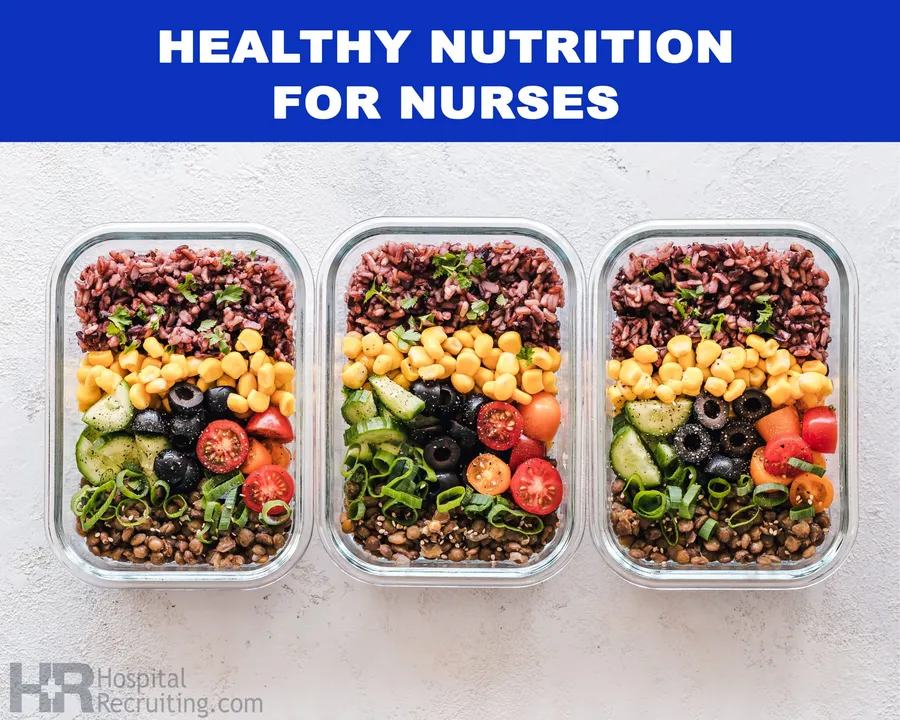Nutritional Tips for Busy Nurses

pexels.com/EllaOlsson
If you work as a nurse, you know downtime on your shift may be hard to come by. Even though you probably get a scheduled 30-minute lunch or dinner break, you might not always take the entire half-hour. Even when you do, you may not always make the best choices.
But as a nurse, you know how critical getting the right nutrition is for your health. Keep reading below for healthy eating tips and tricks to help you manage your nutrition at home and on the job.
Why nutrition may suffer
Many people do not get the nutrition they need regardless of their occupation. We all get busy with work, family life, and everyday responsibilities. If you are a nurse, you may have additional challenges that can interfere with eating right.
Depending on where you work, you might be putting in 12-hour shifts. You also might be working nights, which can disrupt your sleep/wake cycle and your eating habits.
If you are like many people, you also may not be getting enough sleep. Lack of sleep can interfere with the levels of certain hormones in your body, including those that affect your appetite. Being tired on your days off can make it difficult to stick to a healthy eating plan.
Also, it’s not uncommon for nurses to spend some of their break charting or dealing with an emergency, which means meals take a back seat. Plus, with all the options for processed food or fast food, it’s easy to just grab a quick snack, even if it is not the best choice.
Remember the basics
It is helpful to have good eating habits you follow both at work and away from the job. Below are nutritional guidelines to keep in mind.
Stick to lean proteins, complex carb, and veggies: Although many of us remember the basics from nutrition class, we might not always follow them. Try to get enough protein, veggies, fruits, and complex carbohydrates in your diet. For instance, add some form of lean protein to each meal. Good choices include eggs, fish, and grilled chicken. If you are a vegetarian, look for sources of protein, such as tofu and nuts.
Limit sugar and fried foods: Sugar and fried foods are not only high in calories, but they often have trans-fat, which should be avoided as much as possible. Try to limit or avoid soda, chips, candy, and pastries.
Get enough sleep: Lack of sleep may promote bad eating habits. For example, if you are tired, you might feel it is easier to order a pizza than make a healthy meal. Aim for at least seven hours of sleep on most nights of the week.
Tips for healthy eating at work
For some nurses, the days they work make it more difficult to follow healthy eating habits. But consider the following suggestions for eating well during your shift:
Bring your own food: We know the breakroom can be full of snacks and treats, but it is best to avoid all those goodies and bring your own meals. Even if you have a decent hospital cafeteria, bringing your own meals is likely your best bet.
Try not to skip meals: Some days at work may be pretty busy, but try not to skip meals. If you forgo lunch or dinner at work, you are likely to overeat and make poor food choices as soon as you get the chance to eat.
Watch portion size: Sometimes we don’t realize how much we are eating. This can be especially true if you are eating while looking at your phone or doing something else. Pay attention to portion size. If possible, focus on eating and enjoying your meal and not busying yourself with other activities.
Skip the vending machine: It can be tempting to hit the vending machines for a quick snack in the middle of your shift, but food from the vending machine is usually not healthy. If you do need to grab something, choose fruit if it is available or a pack of nuts.
Fruits and veggies are your friends: If you work a 12-hour shift, one meal may not be enough. Stock up on fruits and veggies to have a quick bite to eat when you have time. Fruits and veggies are packed full of nutrients and fiber to fill you up and give you the energy you need at work.
Drink enough water: Drinking enough water is vital for our bodies to function optimally. Also, sometimes we mistake thirst for hunger and reach for a snack. We also get busy on our shift and may forget to stay adequately hydrated.
Snack wisely: Bring or choose a healthy snack for in-between meals, such as Greek yogurt, nuts, and protein bars. Be sure to read the labels on protein bars to check the number of calories and added sugar.
You don’t have to change all your eating habits overnight, but even making a few small changes, such as some of the above, can make a difference. Remember, maintaining proper nutrition helps give you the stamina and energy to be the best nurse you can be and also enjoy your days off!
Related Posts
